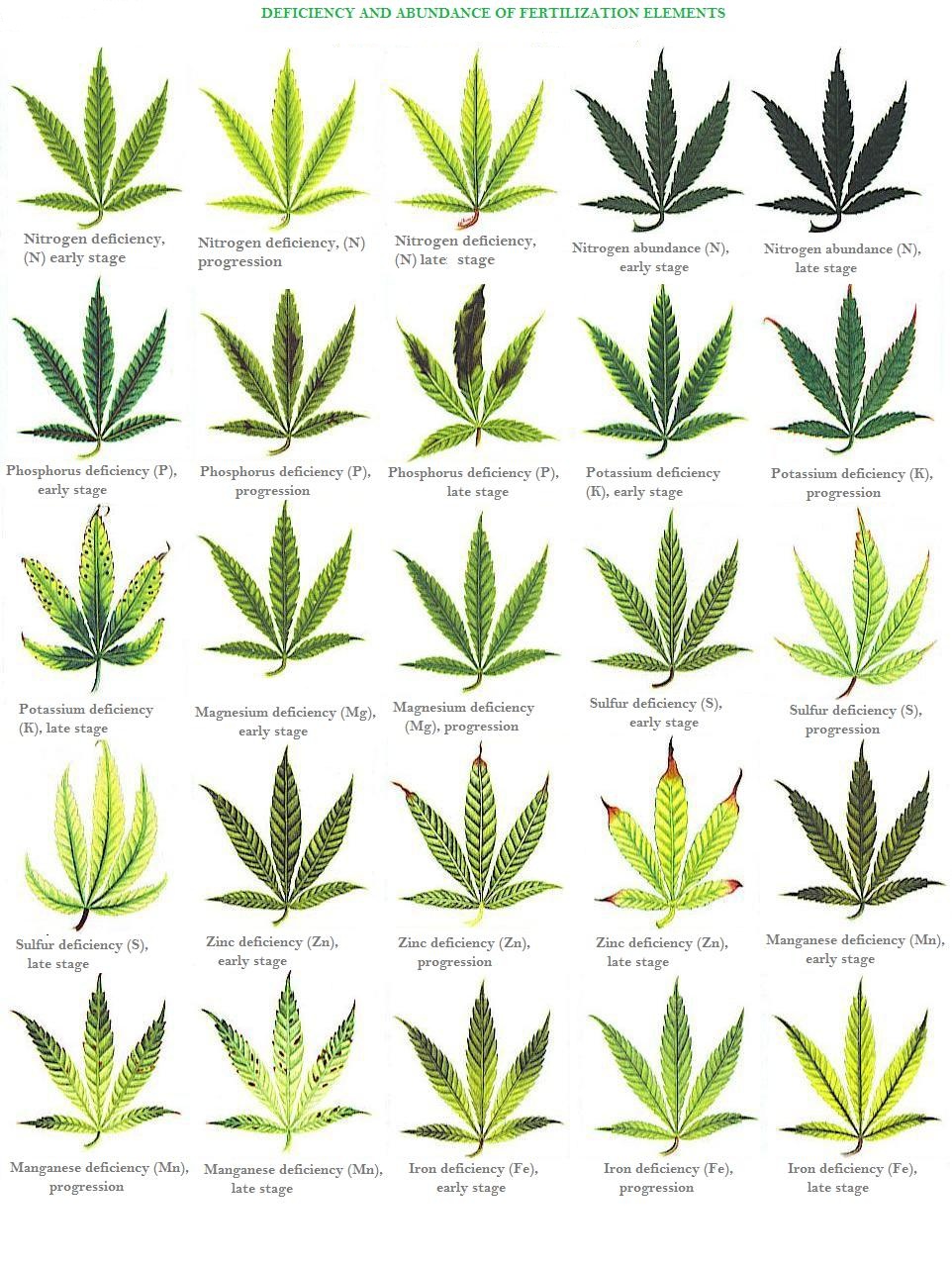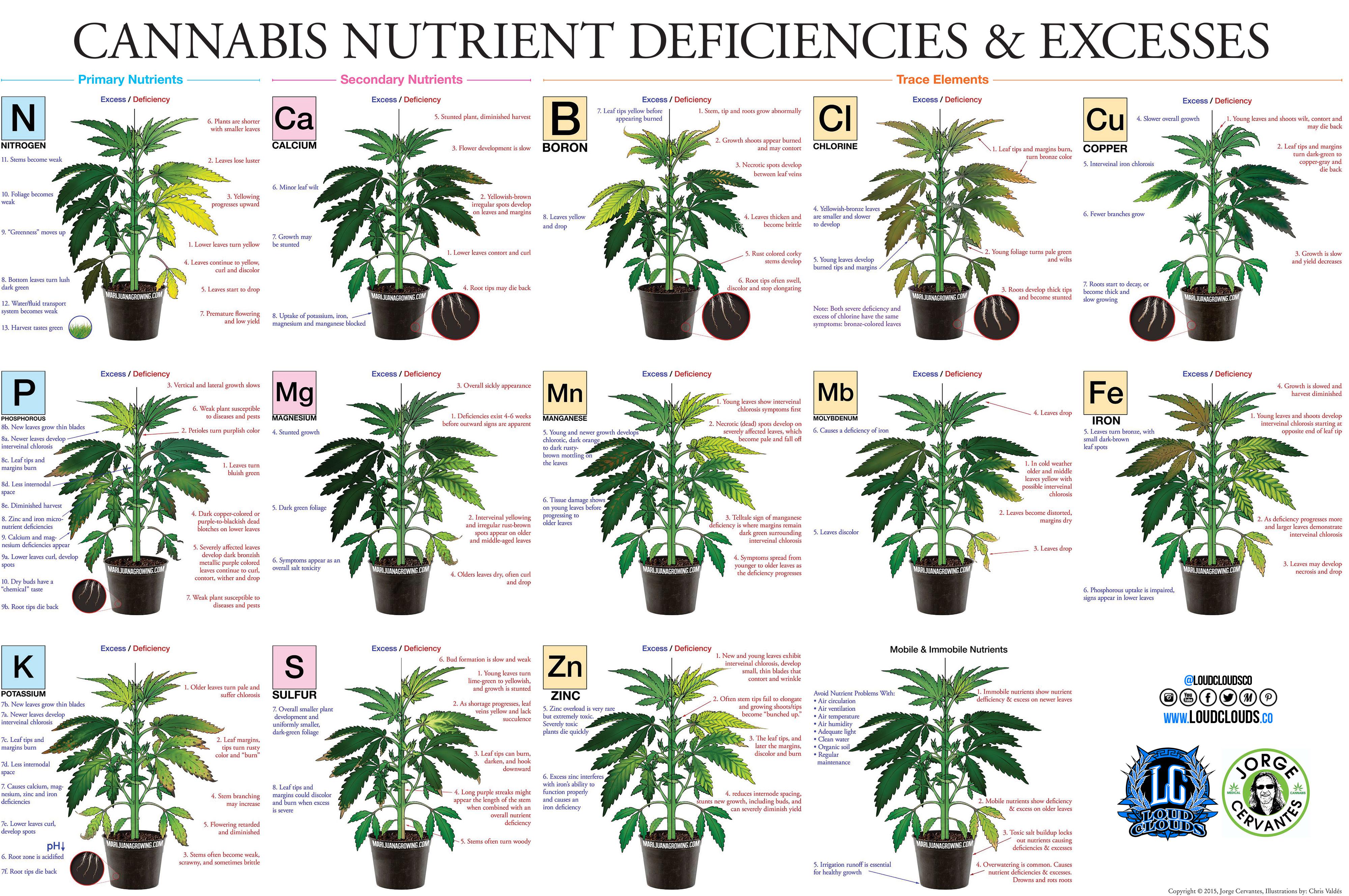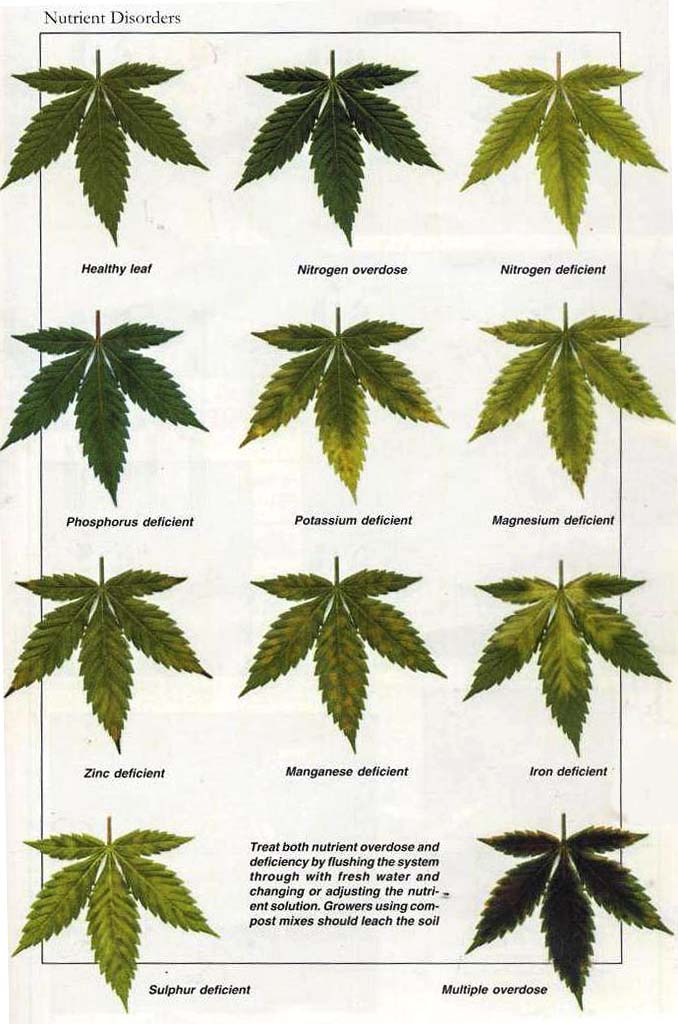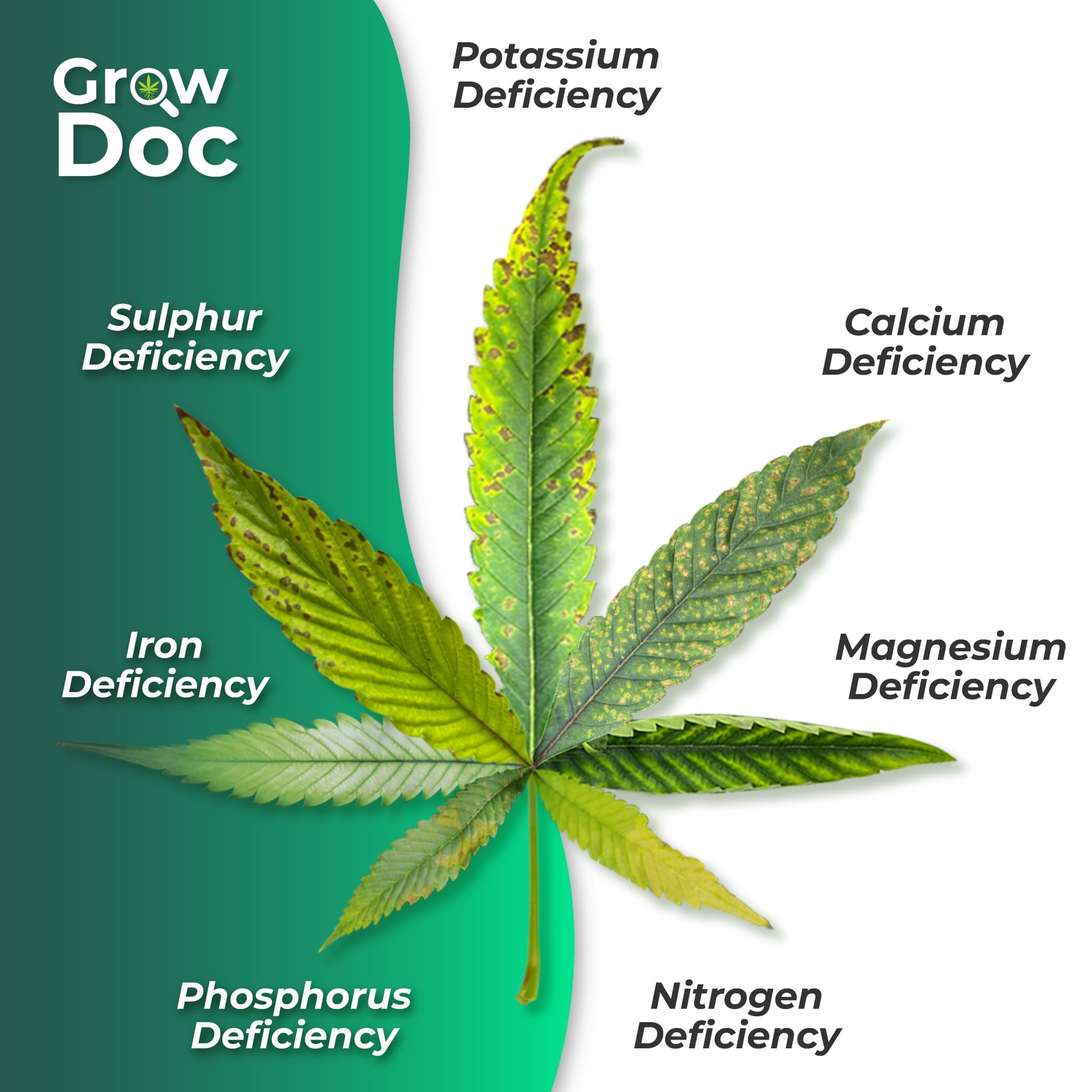Symptoms of bad health: Difference between revisions
m (Aded to intro) |
(Added new image) |
||
| (One intermediate revision by the same user not shown) | |||
| Line 1: | Line 1: | ||
| − | Usually, growers only know a plant is in ill health because it looks different. There are many visual signs that can be used to know if your plant has [[Diseases and Ailments|health problems or diseases]]. |
+ | Usually, growers only know a plant is in ill health because it looks different. There are many visual signs that can be used to know if your plant has [[Diseases and Ailments|health problems or diseases]]. It's important to note that plants can show damage very quickly while recovery can take longer. This leads a lot of growers to overcorrect. |
| + | |||
| + | Most abnormalities in leaf color can be found in this article. This covers nutrient deficiencies and toxicities. If your plant shows other signs of damage it may be the work of [[Pests and insects|Insects or other pests]]. |
||
== By Leaf appearance== |
== By Leaf appearance== |
||
| Line 6: | Line 8: | ||
The color and general appearance of [[Anatomy_of_Cannabis#Fan_leaves|fan leaves]] can provide a lot of information about issues involving nutrients. If the color is uneven it can be a sign of poor health.<div align='center'> |
The color and general appearance of [[Anatomy_of_Cannabis#Fan_leaves|fan leaves]] can provide a lot of information about issues involving nutrients. If the color is uneven it can be a sign of poor health.<div align='center'> |
||
<ul> |
<ul> |
||
| − | <li style="display: inline-block;"> [[File:Deficiency and |
+ | <li style="display: inline-block;"> [[File:Deficiency and abundance of fertilization elements.jpeg|thumb|none|600px]]</li> |
| + | <li style="display: inline-block;">[[File:Whole plant nutrient deficiencies and excesses.jpeg|thumb|600px]] </li> |
||
<li style="display: inline-block;"> [[File:Nutrient_Disorder_visual_guide.jpg|thumb|none|600px]]</li> |
<li style="display: inline-block;"> [[File:Nutrient_Disorder_visual_guide.jpg|thumb|none|600px]]</li> |
||
<li style="display: inline-block;"> [[File:Deficiencies on fan leaves.png|center|thumb|600px]]</li> |
<li style="display: inline-block;"> [[File:Deficiencies on fan leaves.png|center|thumb|600px]]</li> |
||
Latest revision as of 13:41, 8 May 2023
Usually, growers only know a plant is in ill health because it looks different. There are many visual signs that can be used to know if your plant has health problems or diseases. It's important to note that plants can show damage very quickly while recovery can take longer. This leads a lot of growers to overcorrect.
Most abnormalities in leaf color can be found in this article. This covers nutrient deficiencies and toxicities. If your plant shows other signs of damage it may be the work of Insects or other pests.
By Leaf appearance
Fan leaf color
The color and general appearance of fan leaves can provide a lot of information about issues involving nutrients. If the color is uneven it can be a sign of poor health.
Leaves that are a shade of very dark green can be a sign of nitrogen toxicity.
"burned" leaf apex
The fan leaves will also show signs of any nutrient burn taking place. Nutrient burn symptoms occur at the tip of fan leaf "fingers" (the apex) where the leaf turns brown and crispy.
Wilted leaves
This can be a sign of both under and over-watering.
Claw fan leaves
The apex of the leaf clawing down is most often a sign of wind burn (airflow being too intense) or nitrogen toxicity

By plant appearance
Root bound
If roots outgrow the pot they are in they become "bound". If this occurs the plant should be moved to a larger medium to continue growing. Constricting the roots will limit the overall size of the plant and may stunt it.

loss of stem rigidity
This can be a symptom of under-watering



